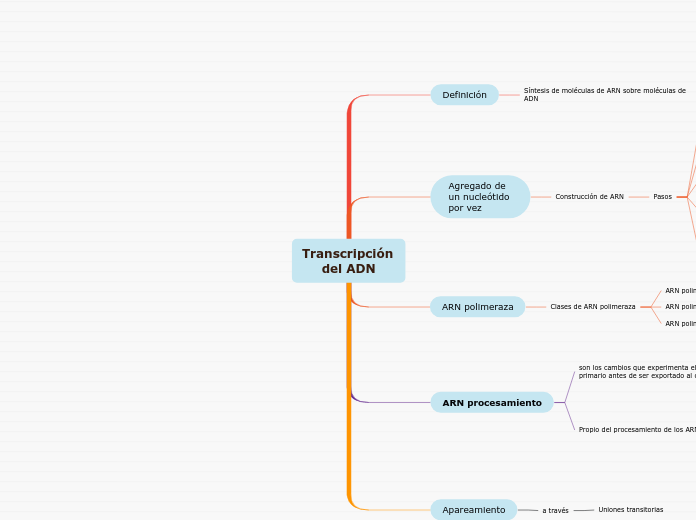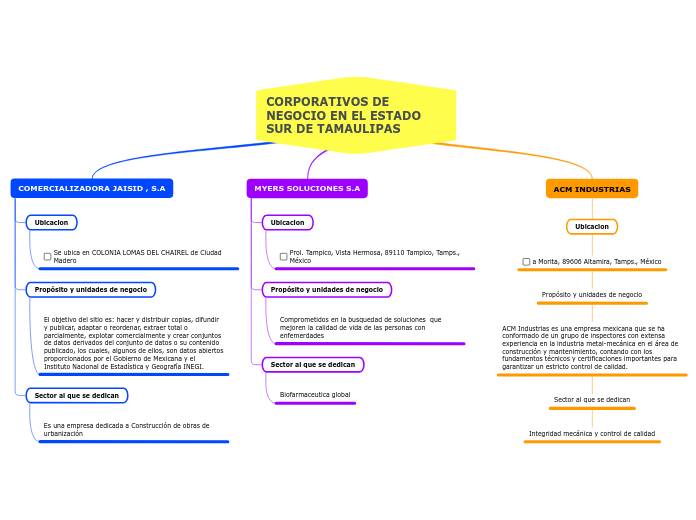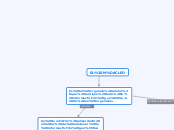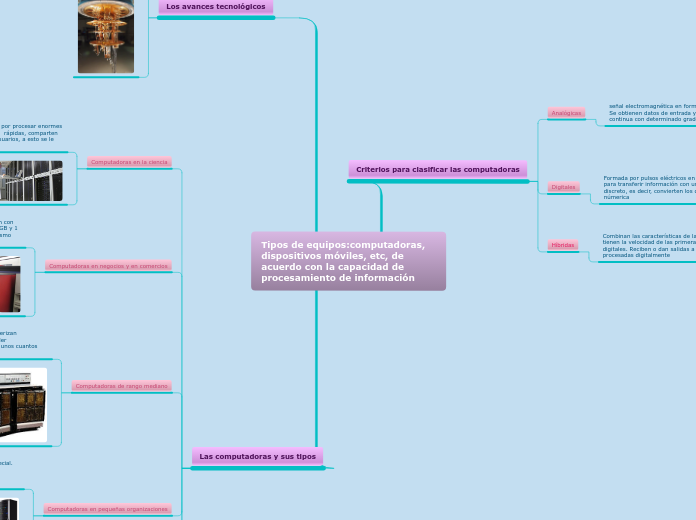Transcripción del ADN
To name your story, you have to think about the overall message and what you want your audience to understand from the story. Also, make it relevant and easy to remember.
Apareamiento
a través
Uniones transitorias
ARN procesamiento
Propio del procesamiento de los ARNm
ambas son imprescindibles para el funcionamiento normal del ARNm
se agrega de sus extremos 5 y 3 de sendas estructuras llamadas
y poli
cap por "capuchón"
son los cambios que experimenta el transcrito primario antes de ser exportado al citoplasma
el transcrito primario suele tener
y de espaciadores en otros
tramos de ARN superfluos (intrones en algunos casos)
la remoción de esos segmentos de ARN no utilizables
un episodio salientes del procesamiento
ARN polimeraza
The ending of a story is essential. We all know that if the ending is weak, what happened before loses its importance. So make it unpredictable, but fair. A resolved ending answers all the questions and ties up any loose threads from the plot.
Clases de ARN polimeraza
ARN polimeraza III
ARN polimeraza II
ARN polimeraza I
Agregado de un nucleótido por vez
The middle of the story is where you add layers of complications that will lead to the end. Reveal more about the character's journey. Did their personality go through changes? How did they overcome the challenges? And as you build up the story’s central conflict, make it more personal to that character. Also, from the middle act, you have to lead into the final act.
Construcción de ARN
Pasos
5) Dirigido por una cadena de ADN
Paso a paso
expone 10 pares de nucleótidos
3 y 5
inicio extremo 5
4) Separación
Ribonucleicos cortan su unión con los desoxirribonucleicos
3) Unión
Rinonucleicos entre sí, dos contiguos
2) Apareamiento
Ribonucleicos+desoxirribonucleicos complementarios del ADN
1) Separación dos cadenas
Toda su extensión
Definición
In the beginning of the story (or the exposition), you will need to introduce the setting and characters. You might also want to introduce the main conflict. This part of the story is important because it gives the reader necessary background information and maybe even a first insight into a character’s personality.
Síntesis de moléculas de ARN sobre moléculas de ADN
Characters are essential to a good story. Usually, the protagonist(s) is/are the most affected by the plot. Introduce a character by focusing on their actions, interests, and occupation, as the physical appearance doesn't make a difference in most cases.
produce
Type in the name of your character.
Unión de nucleótidos
Add other properties of the character.
A
C
G
por
Ordenamiento de nucleotidos complementarios
determinan
Bases de A,U,G y C del ARN con bases T,A,G y C de ADN
U










